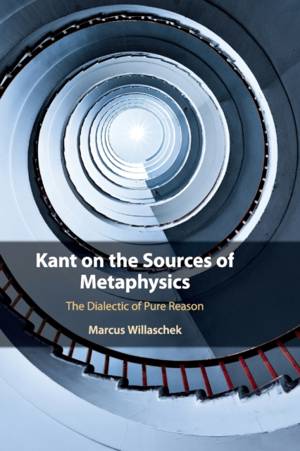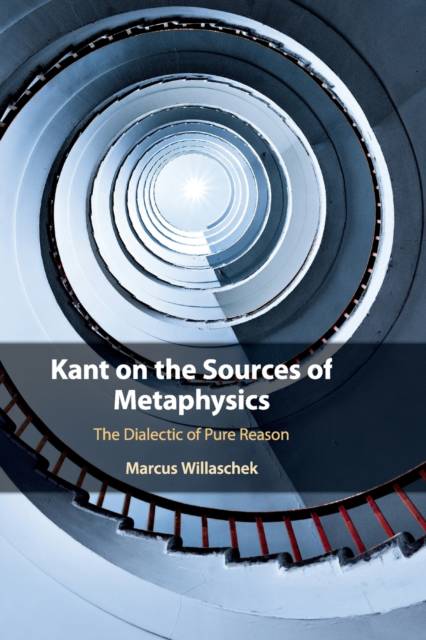
Je cadeautjes zeker op tijd in huis hebben voor de feestdagen? Kom langs in onze winkels en vind het perfecte geschenk!
- Afhalen na 1 uur in een winkel met voorraad
- Gratis thuislevering in België vanaf € 30
- Ruim aanbod met 7 miljoen producten
Je cadeautjes zeker op tijd in huis hebben voor de feestdagen? Kom langs in onze winkels en vind het perfecte geschenk!
- Afhalen na 1 uur in een winkel met voorraad
- Gratis thuislevering in België vanaf € 30
- Ruim aanbod met 7 miljoen producten
Zoeken
Kant on the Sources of Metaphysics
The Dialectic of Pure Reason
Marcus Willaschek
Paperback | Engels
€ 64,95
+ 129 punten
Uitvoering
Omschrijving
In the Critique of Pure Reason, Kant famously criticizes traditional metaphysics and its proofs of immortality, free will and God's existence. What is often overlooked is that Kant also explains why rational beings must ask metaphysical questions about 'unconditioned' objects such as souls, uncaused causes or God, and why answers to these questions will appear rationally compelling to them. In this book, Marcus Willaschek reconstructs and defends Kant's account of the rational sources of metaphysics. After carefully explaining Kant's conceptions of reason and metaphysics, he offers detailed interpretations of the relevant passages from the Critique of Pure Reason (in particular, the 'Transcendental Dialectic') in which Kant explains why reason seeks 'the unconditioned'. Willaschek offers a novel interpretation of the Transcendental Dialectic, pointing up its 'positive' side, while at the same time it uncovers a highly original account of metaphysical thinking that will be relevant to contemporary philosophical debates.
Specificaties
Betrokkenen
- Auteur(s):
- Uitgeverij:
Inhoud
- Aantal bladzijden:
- 310
- Taal:
- Engels
Eigenschappen
- Productcode (EAN):
- 9781108460064
- Verschijningsdatum:
- 26/03/2020
- Uitvoering:
- Paperback
- Formaat:
- Trade paperback (VS)
- Afmetingen:
- 152 mm x 229 mm
- Gewicht:
- 421 g

Alleen bij Standaard Boekhandel
+ 129 punten op je klantenkaart van Standaard Boekhandel
Beoordelingen
We publiceren alleen reviews die voldoen aan de voorwaarden voor reviews. Bekijk onze voorwaarden voor reviews.









